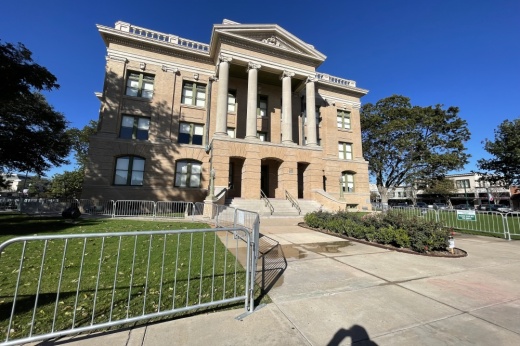The program, first funded through a grant from the Texas Indigent Defense Commission in 2019 with matching funds from Williamson County, provides mental health services, life skills education and training to offenders ages 17-24. 277th District Judge Stacey Matthews said the grant from the DOJ will allow the county to continue the program for another three years.
“So we will not have to come with our hands out, asking you to make these positions—county positions—or to fund us,” Matthews said during a Williamson County Commissioners Court meeting Oct. 25.
As part of the aversion initiative, case managers work with individuals to address their substance abuse issues, education challenges, housing concerns and provide help finding work. The program, which can take 10-18 months, affords participants the opportunity to have their charges dismissed and their records expunged.
County officials partnered with Texas A&M University and Harvard University to conduct research on the program’s effectiveness, and Matthews said research will continue in addition to further studies that will allow more participants to receive support.
Williamson County District Attorney Shawn Dick said the recidivism rate, or the likelihood to commit another crime, is around 85%.
“The goal here is to improve that quite a bit,” Dick said. “We’re getting closer to getting some of those numbers. I know empirically it’s been very successful.”
This is the second funding source the county has received for the Transformative Justice Program since April, when it received a $15,000 grant from the Texas Bar Foundation. The program has had 69 participants so far. By May, the county's goal is to increase that number to 140.
“I want our justice system to be better for this population,” Matthews said. “It helps community safety; it makes people better community members. We want to help them get to a point where they can be successful, participating members of our community.”





